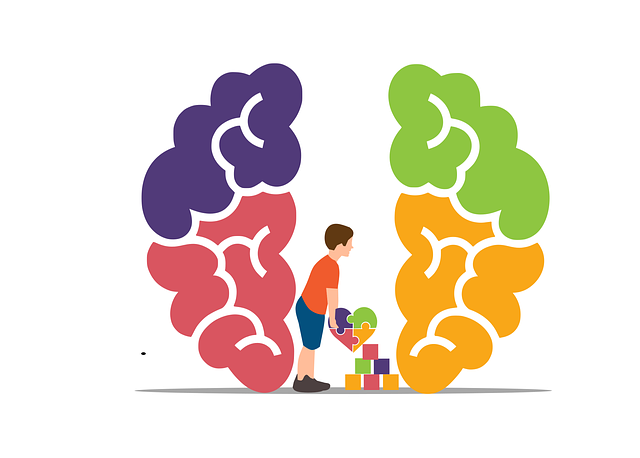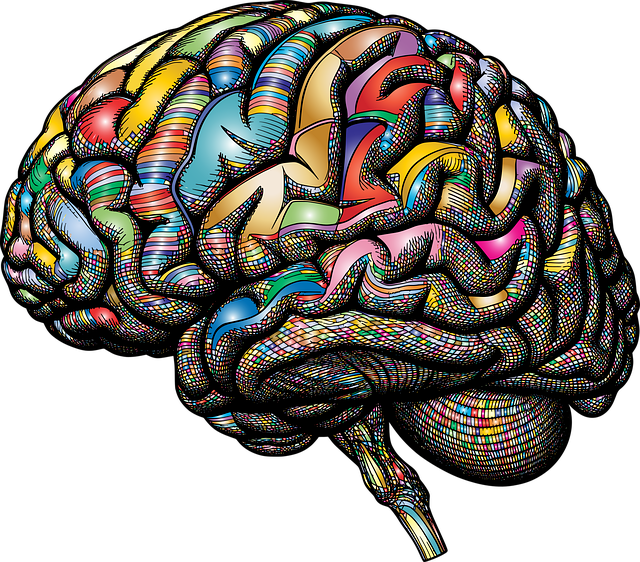Longmont Bipolar Disorder Therapy offers specialized treatment integrating evidence-based practices and personalized care for bipolar disorder management. Through individual therapy, community education programs, and holistic approaches like Cognitive Behavioral Therapy (CBT), they empower individuals to understand and cope with their condition. By combining depression and anxiety relief techniques with conflict resolution skills, Longmont Bipolar Disorder Therapy creates comprehensive support systems for improved well-being and resilience. Strategic planning, adaptability, and multimedia outreach enhance program effectiveness in fostering mental wellness within the Longmont community.
Mental health disorders affect millions, underscoring the urgency for comprehensive education programs. This article explores program design for Longmont Bipolar Disorder Therapy, focusing on understanding mental health conditions, the critical role of early intervention through education, and effective strategies for successful implementation. We delve into key components that contribute to long-term impact, emphasizing continuous improvement as a cornerstone of any robust mental health education initiative. By examining these elements, we aim to enhance support for those grappling with bipolar disorder.
- Understanding Mental Health Disorders: A Comprehensive Overview
- The Role of Education in Early Intervention and Prevention
- Designing an Effective Program: Strategies for Longmont Bipolar Disorder Therapy
- Implementation and Continuous Improvement: Ensuring Long-Term Impact
Understanding Mental Health Disorders: A Comprehensive Overview

The Role of Education in Early Intervention and Prevention

Mental health education plays a pivotal role in early intervention and prevention strategies, especially for conditions like bipolar disorder. By integrating educational programs into community settings, individuals can gain invaluable knowledge about their mental health, fostering self-awareness exercises that empower them to recognize early warning signs. This proactive approach allows for timely interventions, preventing the escalation of symptoms and promoting better long-term outcomes, as seen in studies focusing on Longmont Bipolar Disorder Therapy.
Well-designed Mental Health Education Programs can also introduce empathy-building strategies, encouraging understanding and support among peers. These programs aim to destigmatize mental health conversations, enabling individuals to seek help without fear of judgment. Through interactive workshops and group discussions, participants learn to identify and assist others, creating a network of support that is crucial for managing chronic conditions like bipolar disorder effectively.
Designing an Effective Program: Strategies for Longmont Bipolar Disorder Therapy

Designing an effective mental health program, especially for Longmont Bipolar Disorder Therapy, requires a holistic approach that caters to the unique needs of individuals battling this complex condition. The key lies in creating structured yet flexible frameworks that educate and empower patients. One strategic method is to integrate evidence-based practices such as Cognitive Behavioral Therapy (CBT), which has proven successful in managing symptoms of depression and anxiety, common co-morbidities associated with bipolar disorder.
Incorporating conflict resolution techniques within the program can further benefit participants by teaching them healthy coping mechanisms for navigating interpersonal challenges. This not only fosters better relationships but also provides tools to manage stress and potential triggers. Additionally, focusing on depression prevention strategies alongside anxiety relief techniques can offer a comprehensive support system. Through tailored interventions and a supportive environment, Longmont Bipolar Disorder Therapy programs can significantly enhance the well-being and resilience of those seeking assistance.
Implementation and Continuous Improvement: Ensuring Long-Term Impact

Implementing a mental health education program requires careful planning and strategic execution to ensure its long-term impact on individuals and communities. At the core of successful implementation is adaptability; programs must evolve based on ongoing feedback, new research findings, and changing societal needs. For instance, in Longmont Bipolar Disorder Therapy, continuous improvement can be achieved through regular assessment of participants’ progress and incorporating self-awareness exercises tailored to their evolving needs. This dynamic approach not only enhances the effectiveness of the program but also fosters a deeper sense of mental wellness.
Moreover, leveraging platforms like Mental Wellness Podcast Series Production can amplify the reach and impact of education initiatives. By creating engaging content that delves into various aspects of mental health, these podcasts can spark important conversations, dispel myths, and encourage self-reflection among listeners. Integrating such multimedia components into educational programs ensures that the message resonates with diverse audiences, fostering a culture of open dialogue around mental health awareness and continuous improvement.
Mental health education programs, like those focused on Longmont Bipolar Disorder Therapy, play a pivotal role in early intervention and prevention. By providing comprehensive understanding and effective strategies, these programs empower individuals to manage their mental health effectively. Through careful design, implementation, and continuous improvement, we can ensure that such initiatives have a lasting impact, fostering healthier communities and improved quality of life for those affected by bipolar disorder and other mental health conditions.














